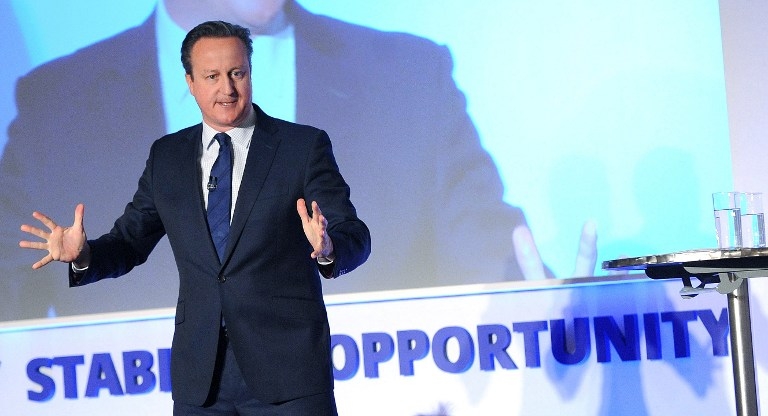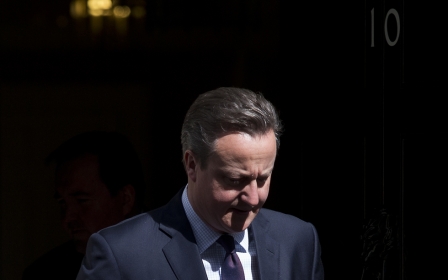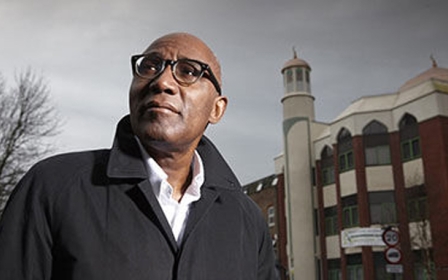David Cameron must apologise to Parliament for his appalling attack against a British Muslim citizen

At last week’s Prime Minister’s Questions, David Cameron made an appalling accusation against a British citizen.
If made outside Parliament, it could have been challenged as seriously defamatory, but inside Parliament, Cameron enjoyed total privilege and it could be repeated freely by the media – as he and his party no doubt intended it to be.
It could expose its victim to criminal charges: it has certainly made him a figure of public hatred and caused distress and anxiety to him and his family.
The victim’s name is Suliman Gani, who is an imam in Tooting, the constituency of Sadiq Khan, Labour’s candidate for mayor of London.
Khan has shared a platform with him several times. Attempting to traduce Khan by association, the prime minister claimed that Gani was a supporter of Islamic State – the most vicious terrorist organisation in the world.
The claim was followed by uproar (also, no doubt, intentional) but stayed on the record and has been extensively quoted.
Cameron has been accused of racism – giving voters a barely coded signal that they should not vote for Khan because he is a Muslim and all Muslims are either terrorists or soft on terrorism.
I don’t think that Cameron is racist. But he has adopted a poisonous syllogism and I am certain that Cameron would not have dared to use his tactics against members of any other faith or indeed any other community in British society.
But if he gets away with his behaviour no one in Britain will have any protection from politically motivated calumny. British democracy and British justice will crumble and we will join those dismal countries whose political leaders are free to brand any opponent as an enemy of the state.
Bear in mind that Cameron’s accusation against Gani was not made on impulse. It was prepared and pre-meditated in response to a question he was expecting.
So the prime minister and his staff have no excuse for naming Gani without reliable evidence to back up their charges.
Yesterday, I rang up Number 10 Downing Street and asked for that evidence. A press officer told me that she could not help me because she was a civil servant and civil servants do not comment on political statements.
This is flummery. Cameron made his statement not on the campaign trail but in his capacity as prime minister, discharging his official responsibilities in the House of Commons, using resources paid for by taxpayers.
So there is no excuse for Number 10 not producing the evidence – if there is any – behind Cameron’s charge. They have failed to do this.
The BBC has quoted a Number 10 spokesman as follows: “At events, this individual has spoken up in support of a range of things including the formation of Islamic State.” Which events? Not named. What range of things? Not said.
I spoke to a member of Cameron’s political team. He pointed me towards a "Quiz a Muslim" event in Bedford on 13 Friday November last year. This can be watched on YouTube. I have studied Gani’s contribution and can find nothing which could be interpreted as giving support to IS.
I also arranged to meet Gani myself. Having done so, I am not surprised at Number 10’s difficulties in substantiating David Cameron’s claim.
He showed me awards and citations from interfaith organisations, and cited many meetings with all-party parliamentary groups and individual Conservative MPs – including Cameron’s flagging mayoral candidate Zac Goldsmith.
Remarkably, for an alleged IS supporter, he has been allowed into Number 10 itself and Parliament on several occasions as part of delegations presenting pleas and petitions.
Gani is a British citizen. He told me he was born and raised in South Africa under apartheid: the politician he most admires is Nelson Mandela for his achievements in reconciling former enemies.
He says that he has never been questioned by the police about any matter or faced inquiries from any official body. David Cameron has no pretext for throwing his name to the mob.
There are two possible explanations for Cameron’s behaviour, neither of them creditable.
The first is that he grabbed Gani’s name from a BBC mayoral debate where Andrew Neil made a similar unsupported accusation against him.
The second is that he was fed Gani by some source in the security services. This doesn't make it true but this possibility has much worse implications. We saw before the Iraq war how the security services can be misused for political purposes by the prime minister of the day. Trust in the security services has been eroded ever since.
However, although Tony Blair’s behaviour remains inexcusable, at least it had a great issue at stake behind it – should Britain go to war in support of the United States? If Cameron took Gani’s name from the security services he did so merely to support a local election campaign – a trivial, partisan cause.
That would contaminate those services even more deeply. We would have repeated the experience of the United States when the FBI, under its infamous director J Edgar Hoover, supplied information to a succession of presidents to condemn and even blackmail their opponents.
Even if Gani’s name did come from intelligence sources, it emphatically does not mean that the information was true. After studying the evidence and after an hour-long conversation with Gani, I am perfectly certain that David Cameron’s statement was completely false. Indeed Suleiman Gani has campaigned against Islamic State, and has cooperated with his local synagogue and local church in Tooting. I have news for Cameron: this is not the conduct of an IS supporter.
In October last year, the prime minister updated the code of conduct for all government ministers, including himself.
He wrote a personal foreword full of ringing declarations, including this one: “People [at the general election] didn’t just tell us what to do, but how to go about it. They want their politicians to uphold the highest standards of propriety. That means being transparent in all we do. It means rooting out any form of misconduct.”
At the very start of the new code, paragraph 1.2.c states: “It is of paramount importance that ministers give accurate and truthful information to Parliament, correcting any inadvertent error at the earliest opportunity. Ministers who knowingly mislead Parliament will be expected to offer their resignation.”
MPs of all parties should now hold David Cameron to that standard. He has failed to substantiate a very grave, damaging and serious statement about Gani, which cannot now be regarded as accurate or truthful.
MPs should make David Cameron withdraw it on the floor of the House, excise it from the public record, and make a public apology for his dreadful conduct.
- Peter Oborne was British Press Awards Columnist of the Year 2013. He recently resigned as chief political columnist of the Daily Telegraph. His books include The Triumph of the Political Class; The Rise of Political Lying;and Why the West is Wrong about Nuclear Iran.
The views expressed in this article belong to the author and do not necessarily reflect the editorial policy of Middle East Eye.
Photo: British Prime Minister David Cameron addresses delegates during the Conservative party Spring Forum in central London on 9 April, 2016 (AFP).
Middle East Eye propose une couverture et une analyse indépendantes et incomparables du Moyen-Orient, de l’Afrique du Nord et d’autres régions du monde. Pour en savoir plus sur la reprise de ce contenu et les frais qui s’appliquent, veuillez remplir ce formulaire [en anglais]. Pour en savoir plus sur MEE, cliquez ici [en anglais].





